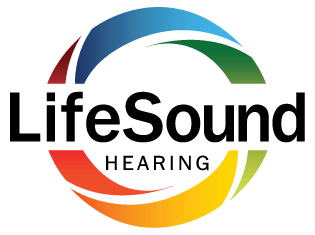Pizza is an interesting thing. As long as it meets a few basic criteria (crust, sauce, cheese, etc.) regardless of the toppings, it’s still pizza. That’s also like hearing loss. Symptoms and presentations are caused by many different issues – loud noises, genetic factors, age, ear obstructions – but as long as you have trouble detecting sounds, it’s still hearing loss.
Normally, when you’re confronted with hearing loss (no matter the variety), the first thing you should do is try to limit the damage. There are, after all, some simple measures you can take to protect your ears and limit further hearing loss.
Tip 1: Keep your ears clean
Remember when your parents used to always ask “did you wash behind your ears”? When it involves hearing health, we aren’t worried about the space behind your ears, but instead your inner ears.
Keeping your ears free of wax buildups can help your hearing in a few different ways:
- Sound waves will have a harder time getting into your inner ear if you have significant buildup. Your hearing becomes compromised as a result.
- If you wear hearing aids, earwax will also impede their functionality. This may make it seem as though your hearing is worsening.
- Your brain and your ability to interpret sounds can be affected over time by neglected hearing loss.
- Your ability to hear can be obstructed by swelling which is caused by profound ear infection as a result of dirty ears. When your ear infection clears, your normal hearing will typically return.
If you notice earwax accumulation, it’s absolutely not recommended that you dig around in there with a cotton swab. Cotton swabs can jam the earwax further up into the ear canal and can cause even more harm. You can get earwax removal drops over-the-counter at your local pharmacy which work better and are safer than swabs.
Tip 2: Try to avoid loud noises that could result in hearing loss
This one should be pretty obvious. But determining what comprises “loud sound” is not easy for most people. it isn’t just blaring speakers or loud rock concerts that harm your ears, freeway driving can be loud enough to damage your ears over a long period of time. Your ears can also be compromised by things like the motor of your lawn mower. And, be careful to safeguard your hearing during those 4th of July fireworks!
Some practical ways to steer clear of harmful noises include:
- Refrain from cranking the volume up on your headphones when you’re streaming videos or listening to tunes. When you’re listening at harmful levels, most phones have built-in warnings.
- When decibel levels get too high, you can use an app on your phone to let you know.
- When you can’t prevent being in a loud setting, wear ear protection. If you want to go to a loud rock concert or if you work in a loud factory that’s okay but remember your ear protection. You can get enough protection from modern earplugs and earmuffs.
So if you go to a noisy event and your hearing seems fine after, that doesn’t mean it is, because hearing loss is often a gradual progression. Only a hearing specialist can give your ears a clean bill of health.
Tip 3: If you have any hearing loss, have it treated
Hearing loss generally builds over time. So you’ll be in a better position to prevent further harm if you catch it early. That’s why treatment is very crucial when it comes to controlling hearing loss. Your hearing will be in the best possible condition when you observe the treatment plan we will lay out for you.
Here’s how treatments work:
- Some, but not all damage can be avoided by hearing aids. With a hearing aid, you’re unlikely to turn up the tv to dangerous volumes. Hearing can prevent further deterioration of your hearing by preventing this kind of damage.
- We will help you avoid further damage by supplying you with customized advice and instructions.
- Mental strain, social withdrawal, and other hearing loss-associated health issues can be prevented by hearing aids.
In the long run you will be benefited by wearing hearing aids
Treatment is one of the primary ways to prevent hearing loss in spite of the fact that there is no cure. Treating your hearing loss appropriately will stop further damage while maintaining your present degree of hearing.
When you use hearing protection, practice good hygiene, and engage in hearing loss treatment with a hearing specialist, you’re taking the correct steps to control hearing loss while also giving yourself the best chance for healthy hearing in the years to come!
[blogcta]

